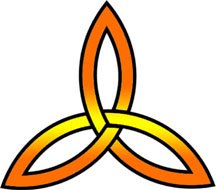"Take it; this is my body.This is my blood of the covenant."
(Mk 14:12-16, 22-26)
 Introduction
IntroductionThe solemnity of the Body and Blood of Christ. Corpus Christi = Body of Christ. This solemnity is about the Real Presence of Jesus Christ in the Eucharist.
The solemnity of Corpus Christi was first celebrated in Belgium. Pope Urban IV extended the celebration to the universal Church, that is, through the Catholic world.
What prompted him to do that? It was a miracle that happened in Turin. A priest who was doubting that the Eucharist is indeed Jesus himself celebrated Mass. At the consecration when he raised the consecrated host, drops of blood fell from it.
Real PresenceWhen the any of the sacraments is celebrated, It is Jesus Christ who celebrates the sacraments. For example, when a child is baptized, it is Christ who baptizes. The priest is his instrument. Thus, Jesus Christ is really present in the celebration of Baptism.
When Eucharist is celebrated, it is Jesus who celebrates the Mass. The priest is his instrument. Thus, Jesus Christ is really present in the celebration of the Eucharist.
But what makes the Mass unique and special is that the bread and wine be-comes Jesus Christ himself. Whereas when Baptism is celebrated, the water remains water. It does not become Jesus Christ.
The term Real Presence is used to express our faith in the transformation of bread and wine into Jesus Christ himself.
Implications1. During the time of Don Bosco, children received first communion when they are older. First Holy Communion at 7 years old was exceptional. Also, it was com-mon practice for Catholics to receive communion once in a while.
Don Bosco went against these two prevailing practices. He wanted children to receive communion as soon as they can distinguish between ordinary bread and the sacred host. Why? Because he wanted Jesus to be the first to take possession of the heart of a child.
He also encouraged the students at the Oratory to receive communion often. Why? Because communion is the Bread that makes us strong. He believed that fre-quent communion makes a Christian strong against temptation.
2. I was told that many many years ago, people went to confession often and communion only once in a while. Today people go to communion often and to con-fession at least once in their life time. We have lost the sense of sin. We must bear in mind that we can not receive communion if we committed a mortal sin. We must first go to confession.
3. When the sanctuary lamp is lighted, it means that the tabernacle contains the consecrated hosts. Therefore, we have to make the genuflection or at least a bow to show our respect to Jesus in the Blessed Sacrament.
4. These are some of the devotions related to the Blessed Sacrament: Benedic-tion, visit to the Blessed Sacrament and adoration at the Adoration Chapel. About the Visit to the Blessed Sacrament, Don Bosco says: Do you want many graces, visit Jesus often. Do you want few graces, visit him less.
ConclusionThe solemnity of the Body and Blood of Christ highlights our faith in the Real Presence of Jesus in the Eucharist. When we receive him in holy communion let our Amen express the firmness of our faith in the Real Presence of Jesus in the commun-ion we receive. And when we leave the church let us make the genuflection or at least a bow in the direction of the tabernacle. Let it be an act of adoration for Jesus in the Blessed Sacrament.



